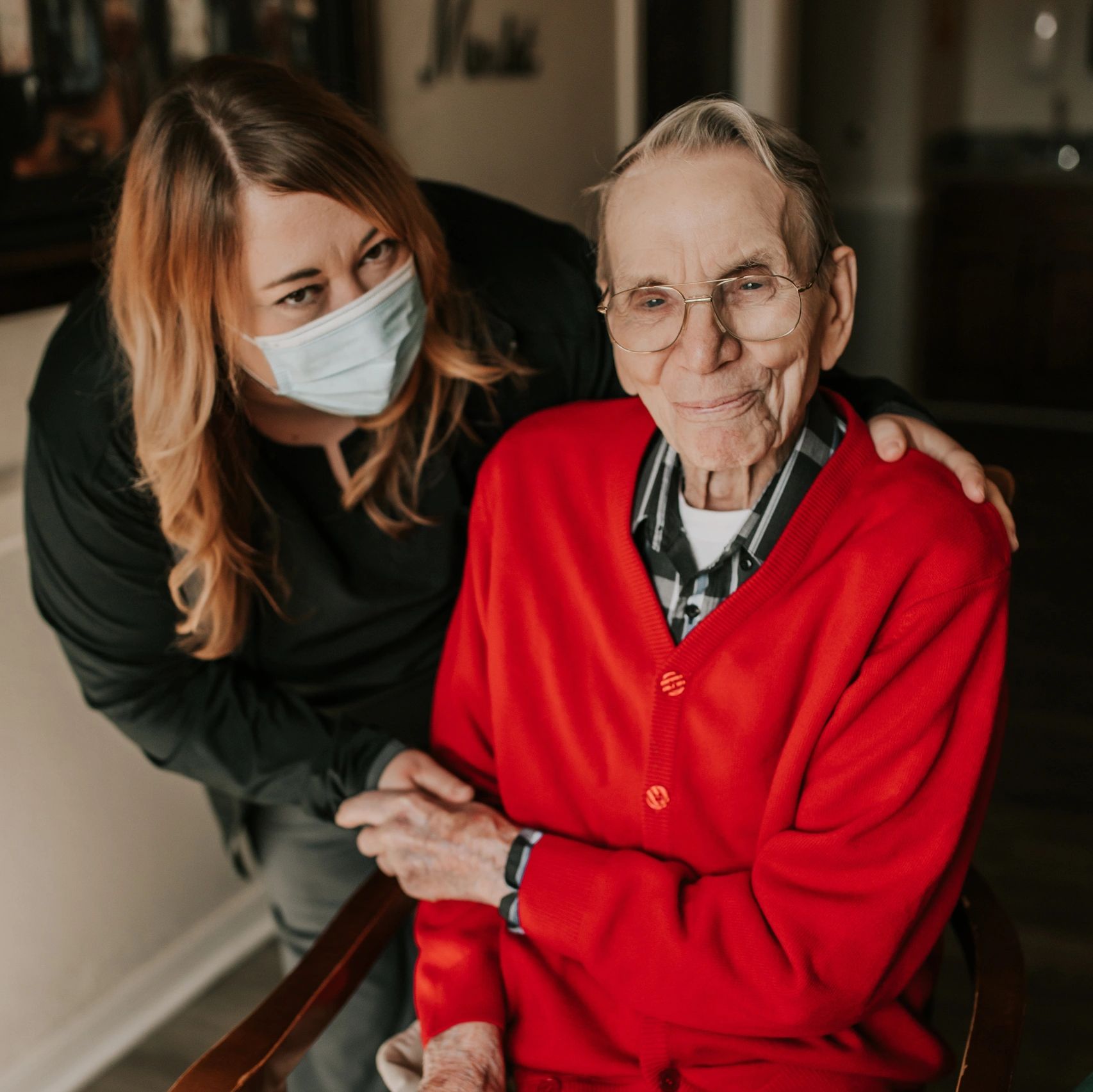The end of life deserves as much beauty, care and respect as the beginning.
Anonymous

Let's Talk about hospice
Why it's important
Ninety percent of people think it is important to talk about end-of-life wishes with their loved ones, but only 27 percent have done so, according to a 2021 study published in the Journal of Psychosocial Nursing and Mental Health Services.
A sizable majority of people say they want to die at home, but 60 percent die in hospitals or institutions.
The most common comment received from patients and family members is that they wish they had experienced hospice care earlier in their illness.
How to start the conversation
Often times providers have the clearest viewpoint of where a patient's health is heading. Contrary to that, patients may not be aware of this or the providers may not be aware of what the patient wants. Below are some ways to introduce the topic:
- "Return trips to the hospital and ED can be exhausting and frustrating. How are you feeling about this right now?"
- "You have been through a lot lately and I want to make sure we are still on the same page together before we continue with more aggressive procedures and tests. What is most important to you?"
- "We are trying to balance a lot of different things related to your health. What is most important to you right now?"
- "Much of what we are fighting for you can't be reversed or fixed at this point. We may need to turn our focus to how we can manage these problems and keep you comfortable. How do you feel about that?"
Hospice Myths
Myth Hospice indicates that a person is giving up hope.
Truth For people with life-threatening disease or illness, the definition of hope can change over time. Initially, hope may be for a curative treatment, but as medical options are exhausted and symptoms progress, hope may be defined by other measures. At end of life, most people hope for comfort, peace, and quality of life. Many are able to express hope around leaving legacies for their families. Even at end of life, families and hospice caregivers never give up caring for their loved ones. Hospice is medical and supportive care with the goal of comfort and dignity.
Myth Hospice is only for cancer patients.
Truth Not anymore. When hospice began in the U.S. in the mid-1970s, most hospice patients had cancer. Today, while many hospice patients have cancer, the majority have other life-limiting illnesses such as end-stage heart, lung or kidney disease, or Alzheimer’s and other dementias.
Myth Hospice is where you go to die
Truth The vast majority of hospice patients receive care in their “home.” This can includes private residences, assisted living communities, and/or other residential care facilities, such as nursing homes.
Myth Hospice means death is imminent.
Truth To qualify, one's life expectancy is usually 6 months or less. With that said studies show that hospice care neither hastens death nor prolongs life. Patients with certain illnesses actually live somewhat longer with hospice care than those with the same illness who don’t choose hospice care, such as patients with progressive heart failure. One thing that is also consistent is that regardless of the disease, patients/family members satisfaction is higher when hospice is involved.
Myth You can't keep your own doctor if you enter a hospice program.
Truth A person’s family doctor or specialist is encouraged to remain engaged in care, even after hospice is providing care. Nothing can replace a longstanding patient/provider relationship and the intent of hospice is not to get in the way of this. Our goal is simply to augment these efforts and be a resource. The Hospice Physician will assist with the plan of care to make sure that the transition to hospice care is as seamless as possible.
Myth Once you choose hospice care there is no turning back.
Truth Once enrolled in hospice care, patients are free to leave a hospice program at any time for any reason without penalty. Re-enrollment in a hospice program is possible as long a medical eligibility criteria are met.
Copyright © 2024 Cottonwood Hospice - All Rights Reserved.
Cottonwood hospice, LLC complies with applicable Federal civil rights laws and does not
discriminate on the basis of race, color, national origin, age, disability, or sex (consistent with the
scope of sex discrimination described at 45 CFR § 92.101(a)(2)) Cottonwood Hospice, LLC does not exclude people or
treat them less favorably because of race, color, national origin, age, disability, or sex.
This website uses cookies.
We use cookies to analyze website traffic and optimize your website experience. By accepting our use of cookies, your data will be aggregated with all other user data.
